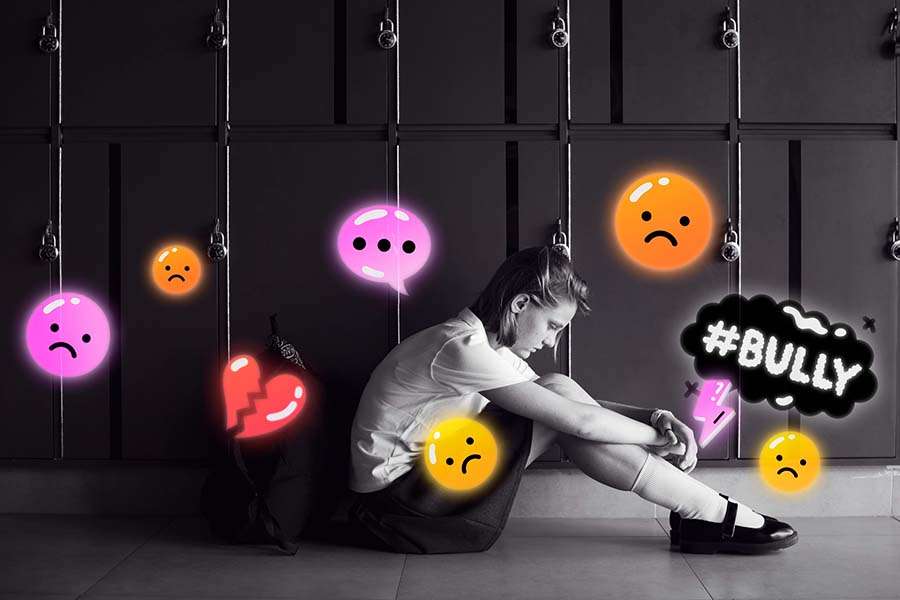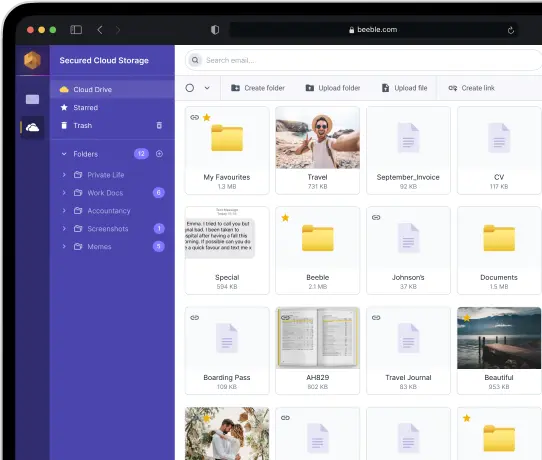Cyberbullying — what is this beast and how to fight it?

The Internet is not only kittens
Unfortunately, not only kind people live in the world. Alas, in the virtual world — too. Even children who learn how to use the Internet soon realize that it is not only populated by fairy tale unicorns and cute kittens.
According to UNICEF, About 150 million children aged 13-15, half of the world’s students, report experiencing peer violence. One in ten children experience this violence on a daily or weekly basis. This abuse has a special term — cyberbullying.
What is bullying and cyberbullying?
Bullying is a type of psychological violence that aims to deliberately cause discomfort and suffering to a person, induce fear in them, and subjugate them with it. This type of abuse can be prolonged and systematic. It is not by chance that online abusers most often choose children and teenagers as victims — because of their age, and emotional and psychological immaturity, they are often unable to protect themselves.
There is regular bullying, which takes place in the physical world — at school, in the gym, on the street, etc. Cyberbullying differs from regular bullying in that it is most often anonymous. As studies show, “cyber-victims” in most cases do not know who the aggressor is. But this is not the only difference.
Specific features of cyberbullying are the use of any kind of technology: smartphones (texting or calls), computers, or the Internet (websites, chat rooms, messengers, e-mail, games, and social networks) to bully.
Online, bullying can last 24 hours a day, made possible by children’s constant connectivity to gadgets and social media.
That’s life, kid…
The cause can be any occasion, all it takes is something to stand out. Therefore, the child must be warned that here — everything is like in life. If you are beautiful, gifted with some talents, or just lucky, it can be a reason for envy and even hatred.
Forms of cyberbullying
- Offensive comments in the victim’s social networks;
- Distribution of offensive pictures and memes with the victim’s photo;
- Personal messages with insults or threats in social networks, messengers;
- Offensive messages on behalf of the victim to other people;
- Extortion, blackmail or threats to publish personal photos and videos, etc., etc.
The violence is virtual — the consequences are real. For example, negative comments about excess weight can make a young teenager suffer from real eating disorders. To sit on unhealthy diets and exhaust themselves with them.
And comments about short stature, stubby ears, sexual orientation? Regular comments about the victim’s ugliness or worthlessness can and do lead to suicide attempts.
The Elusive Avengers
At the same time, online violence is easier to hide. And the child often hides the fact of bullying for various reasons: shy, can not bear the shock, under the influence of conflicting emotions, while intensely experiencing them. Parents seem to be around, but the child is left alone with cyber-violence.
Aggressors can be both acquaintances and strangers. Aggressors on the Internet, as a rule, are more brazen and aggressive — because of the feeling of impunity and impossibility to personalize them, they feel less vulnerable and less responsible, as “elusive avengers”.
Online violence can occur regardless of where the child is physically located. Victims of offline bullying at school may have support from teachers, while victims of online bullying may not always have it.
Celebrities also cry
When a child moves into the category of public figures — popular bloggers and Influencers, the dislike for him grows. Not everyone likes the successful, smart and beautiful, which no doubt your kids are too.
Most trendy Influencers have gone through internet bullying. Sometimes cyberbullying can move offline — public personalities face cyberstalking. This is a type of abuse where follower-haters track down Influencers and start harassing them outside of social media.

How do you protect children from cyberbullying?
First of all, you need to talk to your kids. Tell them about cyberbullying so your child can more easily recognize it. And it will be easier for them to share with you if they are experiencing aggressive attacks and online violence.
Take an interest in their social media friends, common interests. When asking your children how their day went, be interested not only in lessons and activities, but also in their experiences.
Let your children themselves do not speak ill of anyone on the Internet, do not participate in group bullying, succumbing to the herd mentality. Don’t spread rumors or share questionable stories or photos. What may seem like a harmless joke to one person may be deeply hurtful to others.
It makes sense to have a conversation with your child in which you should warn him to make sure that his every word on the internet is weighed. First, it will help him prevent verbal attacks, and second, it will help him not to become an aggressor himself.
In general, this is a test for you as parents — how well you yourself understand and how clearly you can explain to your child what is good and what is bad in the virtual environment.
There are three participants in cyberbullying: the victim, the subject of cyberbullying, and the bystander. Even if children are not victims of cyberbullying, they can play an important role in preventing it by being respectful and kind to their peers. If a child witnesses cyberbullying, he or she can stand up for the victim, offer support, and/or publicly condemn the behavior.
It is the job of the dad and mom to help develop the child’s self-confidence. As much as possible, try to instill in your child the idea that the aggressor is an unfortunate person who has to assert himself or herself by harming others.
Show your child the importance of treating others with kindness and respect. And, of course, set an example for him by your actions. Children still look up to their parents as authority figures, but the internet is increasingly taking their place.
Become part of their online experience. Familiarize yourself with the online platforms your child uses. Warn him or her about the various risks that can be encountered online. The scope of problems can easily grow to hacked emails, and accounts, putting phones online with calls to call and personal photos.
If it has already happened
It is wise to avoid blaming the child in any way for what has happened (“I warned you!”). It is not a good idea to deal with the abusers or their parents on your own. In some cases, this can only make the situation worse.
To deal with the problem, it is best to turn to people you and your child trust. For example, schoolchildren can get support from the educational psychologist who works at their school. It is important to explain to your child that no one has the right to hurt them and that you are there to protect them.
How to recognize that a child is being cyberbullied
It is elementary to pay attention to your child. Look closely at the emotional state of children, as some may have difficulty expressing their anxiety.
- Fear of going to school or going out in the yard
- Anxiety and/or excitement in a child
- Few friends at school or outside of school
- Sudden loss of friends
- Loss or disappearance of clothing, electronics, or other personal items
- Poor academic performance
- Frequently asking for money
- Skipping class or getting calls from school asking permission to go home
- Tending to stay close to adults
- Poor sleep and nightmares
- Complaints of headaches, stomachaches, or other physical ailments
- Bad mood after spending time on the Internet
- Becoming unusually secretive, especially when it comes to online experiences
- Aggression or outbursts of anger.
Advice for kids: complain!
If you are being bullied online, we recommend that you talk to your parents, a teacher, or someone you trust — you have a right to be safe. Facebook or Instagram has made it easier to complain about any type of bullying. You can always anonymously send a complaint to our team about a Facebook or Instagram post, comment, or story.
Staff on these popular social media platforms are available 24 hours a day, 7 days a week to review complaints received from around the world in over 50 languages and remove offensive or bullying content. The confidentiality of complaints is always maintained.
Facebook has a special guide to help you take action when bullying occurs. Instagram has a Parent’s Guide, which contains advice for parents, guardians, and trusted adults on how to deal with online bullying and a central portal where you can learn about our safety tools. In X (Twitter) you can raise an alert through a dedicated page in the Support Center or by managing a tweet by selecting the “Complain about a Tweet” option.


